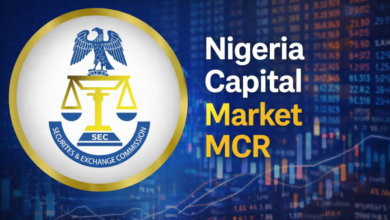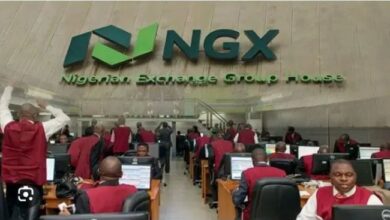Israel-Iran War: Economist Dissects High-Stakes Risks, Hidden Upside, for Nigerian Economy

As geopolitical tensions deepen in the Middle East with the ongoing Israel-Iran War, Nigeria’s already fragile economy faces a complex mix of threats and silver linings, according to leading economist Dr. Muda Yusuf, CEO of the Centre for the Promotion of Private Enterprise (CPPE).
In a statement released in Lagos, Yusuf assessed the ripple effects of the escalating Israel-Iran conflict, warning that while Nigeria stands to benefit from rising crude oil prices, the gains could be undermined by inflation, monetary instability, and tighter credit conditions.
“The Israel-Iran War adds another layer of volatility to an already stressed global economy still reeling from the Russia-Ukraine crisis and the protracted Israel-Hamas war,” Yusuf said.
Oil Price Surge: Boon or Bubble?
Since news of the Israeli-Iranian conflict broke, Brent crude prices have jumped from $65 to $75 per barrel—a sharp 15% spike in just days. While this may seem like a windfall for an oil-exporting country like Nigeria, Yusuf cautions that such price movements are a double-edged sword.
On one hand, higher oil prices translate into better forex earnings, stronger reserves, and a more stable naira—assuming Nigeria can ramp up production and curb oil theft. Oil still accounts for nearly 50% of government revenue and 90% of export earnings, making it the most consequential external variable for the country’s fiscal health.
“If Nigeria can improve output performance, the surge in oil prices could significantly enhance fiscal consolidation and support efforts to reduce the deficit,” Yusuf explained.
Inflationary Headwinds and Monetary Tightening Ahead
However, the economist warns that energy cost inflation could erode the expected gains, particularly in downstream consumption. With oil being a major input for petrol, diesel, jet fuel, and cooking gas, businesses and consumers are bracing for steeper operational and transportation costs.
This, in turn, could worsen Nigeria’s already precarious inflation trajectory and force the Central Bank of Nigeria (CBN) to adopt a more aggressive monetary tightening stance. Such a policy shift would likely raise interest rates and exacerbate the credit crunch for businesses already struggling to access financing.
Yusuf also pointed to the risk of monetary expansion from increased oil revenues—given the tendency of government to monetize oil receipts.
“More oil dollars mean more naira supply, which can fuel inflation and weaken the exchange rate unless carefully sterilised,” he said.
Stock Market Could Benefit—But with Caveats
Despite the macroeconomic volatility, Nigeria’s equity markets could be in for a short-term boost. Historically, Yusuf notes, crude oil prices have a positive correlation with GDP growth and stock market performance, especially for energy and infrastructure stocks.
“Investors in upstream oil and gas are likely to post strong returns if the crisis prolongs and oil prices remain elevated,” he added.
This sentiment aligns with recent gains in energy-linked equities and increased investor interest in oil-adjacent sectors like logistics, marine services, and power generation.
The Catch: Can Nigeria Capitalise on the Crisis?
The underlying question remains: Can Nigeria seize this geopolitical moment? Analysts agree that without addressing domestic production constraints, pipeline sabotage, and regulatory bottlenecks, the upside from rising crude prices may slip through the cracks.
With global oil markets tightening and supply disruptions looming, Nigeria’s OPEC quota and actual production performance will be decisive in determining whether the economy benefits from the chaos or gets swept away by it.
BRANDECONOMY Insight: Between Crisis and Opportunity
While the Israel-Iran conflict is unfolding thousands of miles away, its shockwaves are echoing loudly through the corridors of Nigeria’s economy. Policymakers must strike a careful balance—leveraging higher oil revenues for fiscal reform while guarding against inflation, debt expansion, and monetary laxity.
If the lessons of previous oil booms are not quickly internalised, Nigeria risks repeating a familiar cycle: windfall today, macro instability tomorrow.








